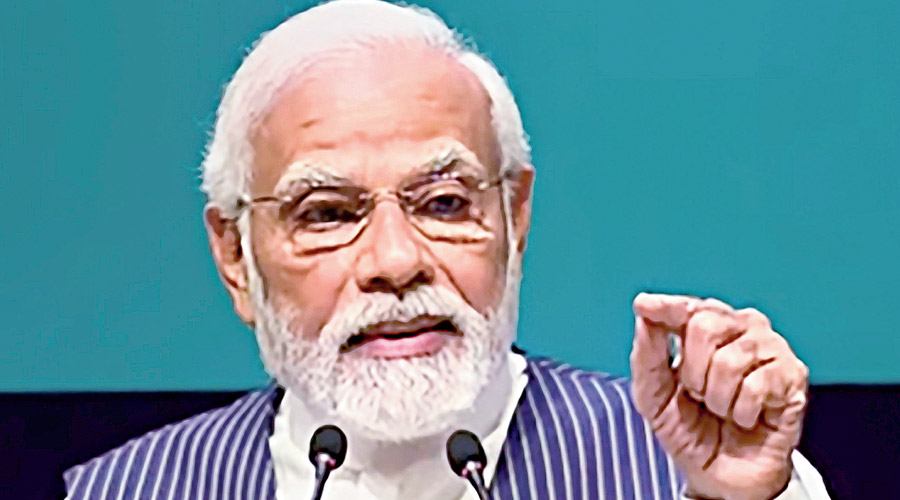Sri Lanka’s new president, Ranil Wickremesinghe, has received congratulatory messages from Russia’s Vladimir Putin and China’s Xi Jinping. Wickremesinghe has even had a call with a junior British minister in the foreign office, Tariq Ahmad. It was only after all those other leaders that India’s prime minister, Narendra Modi, belatedly wished Wickremesinghe on Tuesday.
That’s out of character for Modi. That’s also smart on the part of India.
The International Monetary Fund has warned that the world must look at the crisis in Sri Lanka, where the economy is in free fall, as a canary in the coalmine. Indeed, the twin fires of economic uncertainty and political chaos are exploding across South Asia. Pakistan stands on the cusp of a potential debt default. Nepal and Bangladesh are facing foreign exchange shortages.
How India’s neighbours respond to these challenges will shape their future and that of the region. Yet, the current moment also represents the stiffest diplomatic test that Modi has faced since coming to power because he must behave in a manner seemingly alien to him in order to defend the interests of India and South Asia.
From threatening to look China in the eye to boasts of a 56-inch chest, Modi came to power promising to rewrite relations with the region and beyond on New Delhi’s terms.
Keeping a low profile doesn’t come naturally to Modi: he announced himself on the world stage with an inauguration that was more like the coronation of a king in 2014, with leaders from across the region summoned to attend. On his first visit to the United States of America — a country that had once banned his entry — after becoming prime minister, Modi sparked traffic snarls in New York City with a bash at Madison Square Garden.
When any leader takes charge of her or his country, Modi is usually among the first to wish him/her. That’s how it has been in the past when Wickremesinghe has been elected prime minister — the Indian leader had previously been quick to congratulate the veteran Sri Lankan politician.
But there’s a thin line between being proactive and overbearing; between being helpful and intrusive. India, the region’s big power, hasn’t always stayed on the right side of that line. Modi has been particularly guilty of overstepping.
In 2015, he claimed that Nepal’s then prime minister learned of his country’s devastating earthquake from the Indian leader. Later that year, India-supported opponents of the regime in Kathmandu enforced a border blockade that brought Nepal’s already struggling economy to its knees and deepened local anger against New Delhi. The same year, Sri Lanka’s then outgoing president, Mahinda Rajapaksa, accused India’s intelligence agencies of conspiring to oust him. That allegation came after a curious meeting between the national security adviser, Ajit Doval, and leaders of the previously fragmented Sri Lankan Opposition who subsequently united to defeat Rajapaksa.
So far, New Delhi has steered clear of any steps that could be interpreted as favouring one political faction in Colombo over another amid the current crisis, debunking conspiracy theories. It has maintained this posture even as it has supported Sri Lanka with $3.5 billion in loans and aid.
This is the correct approach: India must help Sri Lanka and other neighbours without injecting itself into their domestic politics. The popularity of leaders in power in many of India’s neighbouring nations — whether Wickremesinghe in Sri Lanka or the ruling coalition in Pakistan — is untested. At the same time, in Sri Lanka at least, the elected Opposition hasn’t shown that it has public support either.
Staying out of the headlines on the region’s biggest issues isn’t easy for Modi. With China wooing Wickremesinghe, it would be tempting to jump into the fray. But amid the current crisis, a simple question could shape Modi’s legacy: can India’s prime minister be unlike himself ?
Charu Sudan Kasturi is a senior journalist who writes on foreign policy and international relations










